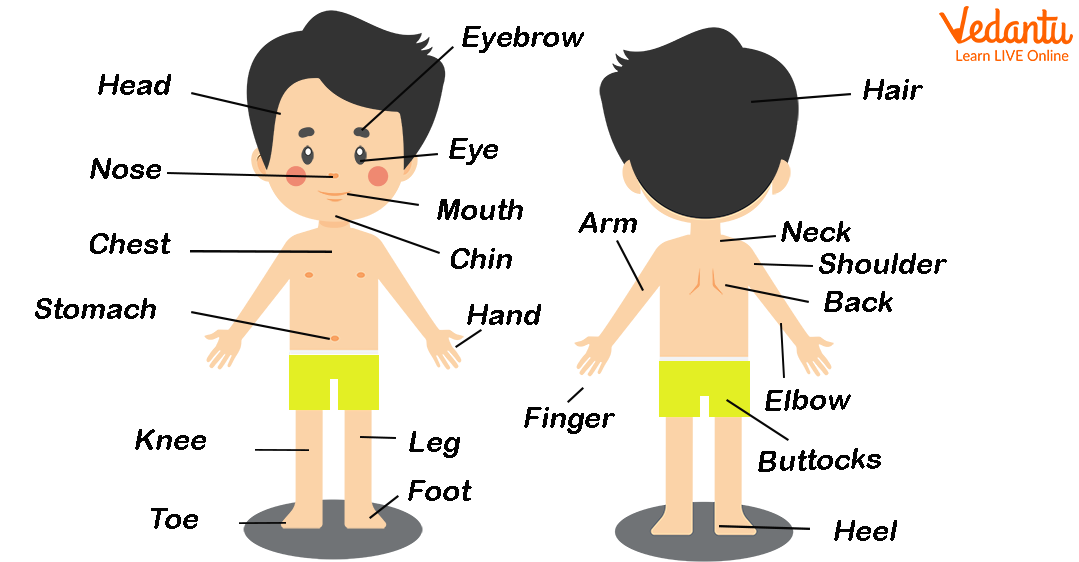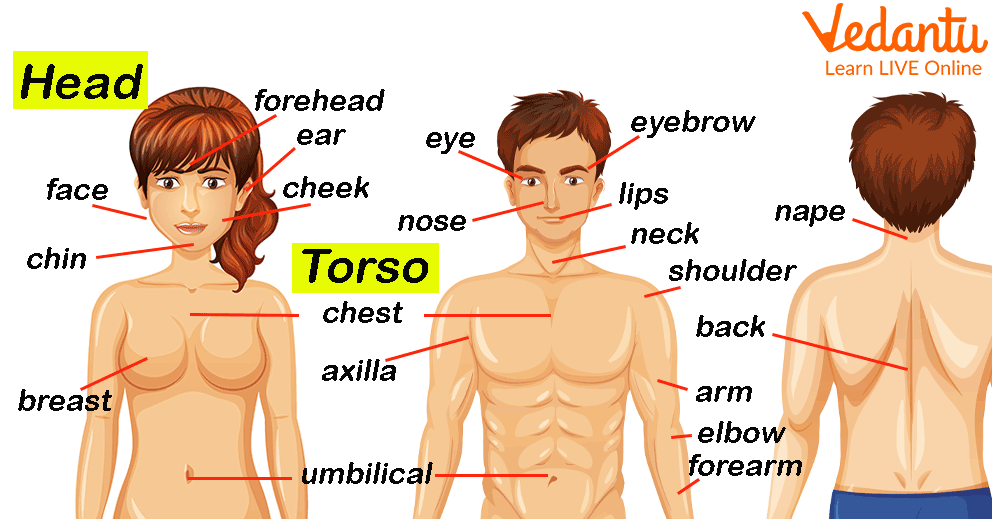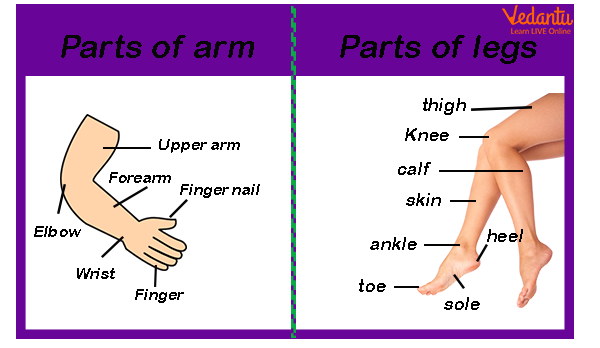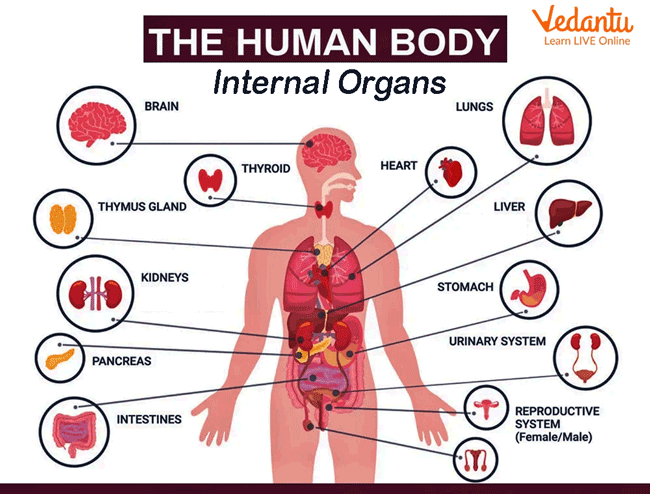




Essential Human Body Parts and Their Functions for Students
As kids start growing up, they become more curious about their surroundings as well as their body. Kids usually know about the visible body parts and are familiar with the function of the body parts to some extent. Some of the common human body parts name that kids know are head, shoulders, knees, toes, etc. But what are the other important body parts? Each main body portion is made up of smaller body parts that serve diverse purposes.
The article provides the names of body parts as well as their fundamental functions. This article is aimed at helping kids learn about the names of the different body parts, which can help widen their vocabulary and develop a better understanding of their bodies.
A Brief Introduction to Body Parts
The human body is made of a large number of organs. These organs perform their functions to sustain a healthy life. Since we contain a lot of organs, it collectively forms a system called the organ system. Different body parts or organs work in coordination to help us perform our daily functions. For a better understanding of the kids, the body parts are divided into three groups that are the torso, extremities, and internal parts.
Human Body Parts Name
Head
Hair
Ear
Neck
Eye
Nose
Mouth
Shoulder
Arm
Toes
Leg
Knee
Foot
Hand
Woman Body Parts Name
Head & Face:
Hair
Forehead
Eyes
Eyebrows
Eyelashes
Nose
Ears
Cheeks
Lips
Teeth
Tongue
Chin
Neck
Upper Body:
Shoulders
Arms
Elbows
Wrists
Hands
Fingers
Nails
Chest
Breasts
Lower Body:
Waist
Hips
Thighs
Knees
Calves
Ankles
Feet
Toes
Internal Organs (Important Ones):
Brain
Heart
Lungs
Stomach
Liver
Kidneys
Intestines
Uterus
Ovaries
Male Body Parts Name
Head & Face:
Hair
Forehead
Eyes
Eyebrows
Eyelashes
Nose
Ears
Cheeks
Lips
Teeth
Tongue
Chin
Beard
Mustache
Neck
Upper Body:
Shoulders
Arms
Elbows
Wrists
Hands
Fingers
Nails
Chest
Abdomen
Lower Body:
Waist
Hips
Thighs
Knees
Calves
Ankles
Feet
Toes
Internal Organs (Important Ones):
Brain
Heart
Lungs
Stomach
Liver
Kidneys
Intestines
Prostate
Testes
Body Parts Name with Picture

Image illustrating the body parts of a human
The Torso
The torso is also known as the trunk, it is the central part of the human body. The torso starts from the head and extends to the waist of the body. The organs that are constituted in it includes the hip, waist, ribcage, belly button, abdomen, hips chest, and spine. Body parts name in English such as these are crucial for the body's structure. The main function of the torso is to provide stabilisation to the body. It maintains the posture. The torso also protects the internal organs of the body. Examples of the internal organ protected by the torso include the heart, lungs and the wind and the food pipe.

Image illustrating the torso of a human body
The Extremities
The extremity is a term used to define the legs and arms of the human body. The arm of the human body can further be divided into the shoulder, elbows, palm, and finger. The legs are further divided into the thighs, knees, calves, and feet. All these structures together make up the arms and legs of the human body.
The arm helps us carry objects, eat food, and balance things, whereas the legs are primarily involved in locomotion. Locomotion refers to movement from one place to another.

Image illustrating the parts of arm and legs
Internal Organs
The body parts discussed till now are the organs that are visible to us. But it is very interesting to note that there are organs inside the human body that are not visible to the naked eye but carry out critical functions that ensure our survival. In simpler terms, internal organs are the body parts that are present inside the cavity of the human body. Examples of internal organs include the liver, kidney, brain, heart, lungs, and stomach. Male body parts name also include internal organs like the prostate, which play an essential role in health. Let us look into some of the important functions performed by the internal organs.

Image illustrating the internal organs of a body
Liver- It is located in the upper right part of the abdominal cavity, it is one of the most essential organs of the human body. The two most important functions of the liver are detoxification and digestion. The molecules secreted by the liver aids in food digestion.
Kidney- It is a bean-shaped organ; there are two kidneys in the human body. They are crucial for the survival of a human being. They are responsible for the purification of blood and the formation of urine.
Heart- The heart is located in the ribcage. It is the organ that works non-stop from the time of birth. The heart is responsible for pumping blood into the body. Kids can listen to the pumping sound of the heart through the chest.
Brain- The most important part of the human body is the brain. It is the organs that control all the activity performed by the body. Whether it is the consumption of food or walking down the road or memorising the body parts name, these all functions are controlled by the brain.
Conclusion
By now we presume you have learnt and understood the important body parts. We hope to have helped kids to develop a better understanding of the body part names and their functions. The knowledge of these names, including women's body parts name, not only helps kids to perform better at school but also helps to develop a better understanding of their body. Parents are advised to encourage their children to learn about the basic body parts and their functions through pictures and videos. This would also help them in understanding hygiene and protection of their body as they grow.
FAQs on Body Parts Name in English: Easy Guide for Kids
1. How to identify body parts?
To identify body parts, observe different sections of the human body, such as the head, hands, legs, and feet. Point to each part and say its name. You can use
- pictures
- models
- your own body
2. What is the name of the body parts?
Common body parts names include:
- Head
- Neck
- Shoulder
- Hand
- Leg
- Foot
- Eye
- Ear
- Nose
- Mouth
3. What is each part of the body known as?
Each body part has a special name. For example:
- The part used for seeing is called the eye.
- The part used for hearing is the ear.
- We walk with our legs and feet.
- We write with our hands.
4. What are other names for body parts?
Other names for body parts include:
- Stomach (belly or tummy)
- Forearm (lower arm)
- Abdomen (stomach area)
- Chest (thorax)
- Foot (feet, singular/plural)
5. Which body parts help us sense things?
The sensory organs are the body parts that help us sense things. They are:
- Eyes – to see
- Ears – to hear
- Nose – to smell
- Tongue – to taste
- Skin – to touch
6. How can children learn body parts easily?
Children can learn body parts easily by using songs, games, and pointing to their own or others’ body parts while saying their names. Flashcards, pictures, and rhymes also make learning fun and memorable for kids.
7. What is the difference between internal and external body parts?
External body parts are visible, like arms, legs, or nose. Internal body parts are inside the body, like the heart, lungs, or brain. External parts are easy to see, while internal parts are not visible from outside.
8. Why is it important to know body parts names?
Knowing body parts names helps children communicate about their health, understand instructions, and identify their senses. It is important for learning, safety, and healthy development from an early age.
9. Can you list five main parts of the human body?
Here are five main body parts:
- Head
- Hand
- Leg
- Eye
- Mouth
10. What body part do we use to eat food?
We use our mouth to eat food. The mouth has teeth to chew and the tongue to help in tasting and swallowing food. It is an essential part for eating and speaking.
11. Which body part helps us walk?
Our legs and feet help us walk. Legs support the body and feet touch the ground, allowing movement and balance.















